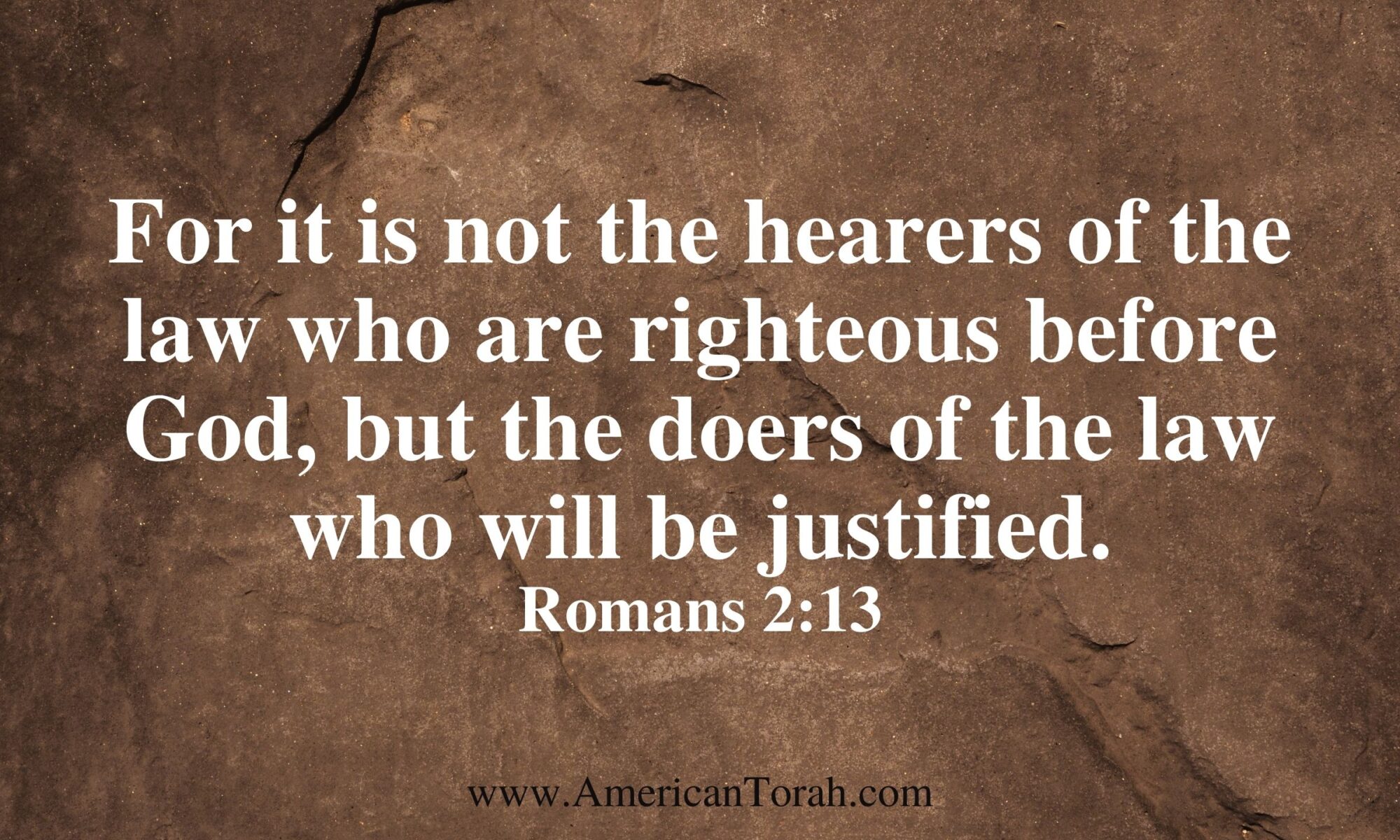In another attempt to say that Christians have no obligation to keep the Law of Moses (aka God’s Law), Freddy wrote, “Paul tells us in Romans that the Gentiles who have no law do by nature what law empells them to do so they are a law unto themselves.”
Here is the passage to which Freddy is alluding:
For it is not the hearers of the law who are righteous before God, but the doers of the law who will be justified. For when Gentiles, who do not have the law, by nature do what the law requires, they are a law to themselves, even though they do not have the law. They show that the work of the law is written on their hearts, while their conscience also bears witness, and their conflicting thoughts accuse or even excuse them on that day when, according to my gospel, God judges the secrets of men by Christ Jesus.
Romans 2:13-16 ESV
Clearly there is nothing here that implies that being “a law unto themselves” excuses Gentiles from keeping the Law. In fact, Paul said exactly the opposite in this very passage: God will judge them according to their obedience of what they understand of his Law, even if they don’t know that it is his Law. Let me paraphrase and expand this passage to clarify what I believe Paul intended:
Nobody is righteous in God’s eyes merely because he knows the Law. The righteous, those who are justified by God’s mercy, are not those who know what the Law says, but those who actually do what the Law says. Consider Gentiles who have never heard Moses taught in a synagogue. When they instinctively do what God commanded us to do in the Law, even though they know nothing of Moses, it is as if they are Moses, the stone tablets, and the scrolls in themselves. Their actions show that, in their hearts, they already know the basic dos-and-donts of the Law. Not just their visible deeds, but also when their consciences prompt them to do good or make them feel guilty for doing wrong. Since at some level they know what is right and wrong, that knowledge will serve as a witness to their obedience or disobedience to the Law when God, through Jesus Christ, judges all of our hidden deeds and thoughts, as the good news of the Kingdom of Heaven requires.
Romans 2:13-16 (Paraphrased and Amplified)
In other words, at the final judgment, God will hold everyone–Jew or Gentile–accountable for their disobedience to what they instinctively understand of his Law, whether they have read the Bible or not. As Paul pointed out in the previous chapter, Romans 1, everyone is born with a basic understanding of right and wrong as defined by God’s eternal Law. By refusing to heed our conscience, we gradually silence it, but our willful deafness will not be a defense. We can’t claim ignorance of the Law today when we knew yesterday.
Everything that Yeshua (aka Jesus) & the Apostles taught
Come with me as I draw out the connections that are so often missed |



Christians have no OBLIGATION to keep the Law of Moses (LM); Paul’s point is judgment come to those obligated to keep the LM and those not. The Jewish community was obligated, the non-Jewish community never has been.
Paul makes clear the hypocrisy of the Jewish community in their effort to obligate the LM to others, but fail to be devoted and practice what they try to obligate (2:1-11). Thus, 2:12 pertains to judgment against both communities: those who have the LM and do not obey; and to those who do not have the LM and refuse to do good instinctively.
Those of the non-Jewish community who do not have the LM, but do instinctively what the LM says (in part), they are in better position than the Jewish community who has the LM but failed to live in accordance with its teachings.
I think it really depends on what you mean by “obligation” and “Law of Moses”. The real dispute Paul had with the Jews was that they were trying to make the gentile converts keep Jewish tradition, which is often confused with the Law of Moses, in order to be considered “saved”. The issue was never about whether converts should keep the Law, but which law, why, and how quickly.
The actual Law of Moses, as opposed to the Jewish traditions that had been piled on top of it, teaches right from wrong and how to love God and mankind. None of its rules apply to everyone, of course. For example, no gentile convert can ever be a Levitical priest and no man can ever be a woman, so the rules that apply only to those people wouldn’t apply to a gentile man.
Obedience to the Law was never a condition for salvation for anyone, but obedience to what you understand has always been an obligation for all citizens of the Kingdom of God. Again, not to obtain citizenship, but because you are a citizen. This is why the Jerusalem Council said that new converts can start with a few basic rules for fellowship and learn the rest of Moses at their local synagogue.